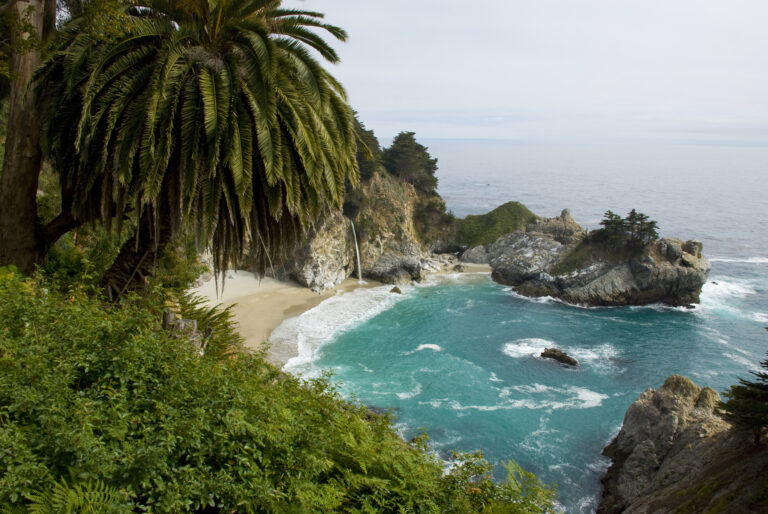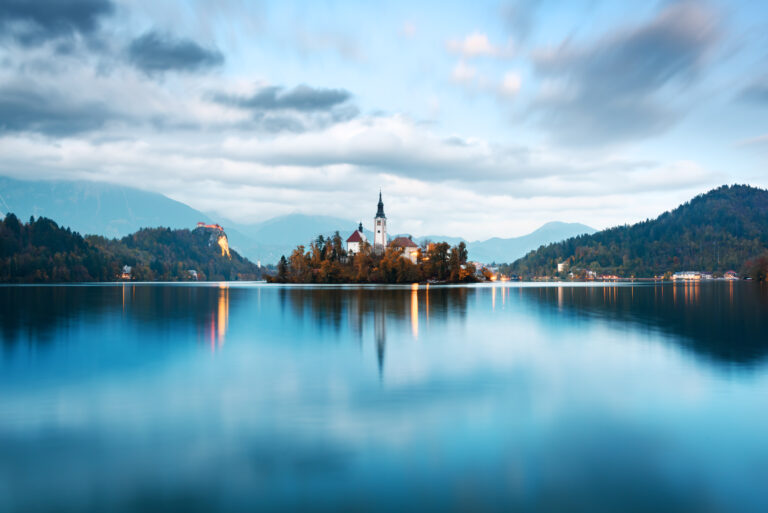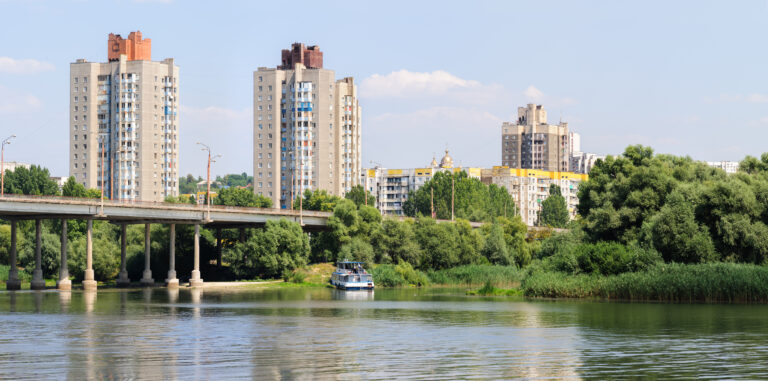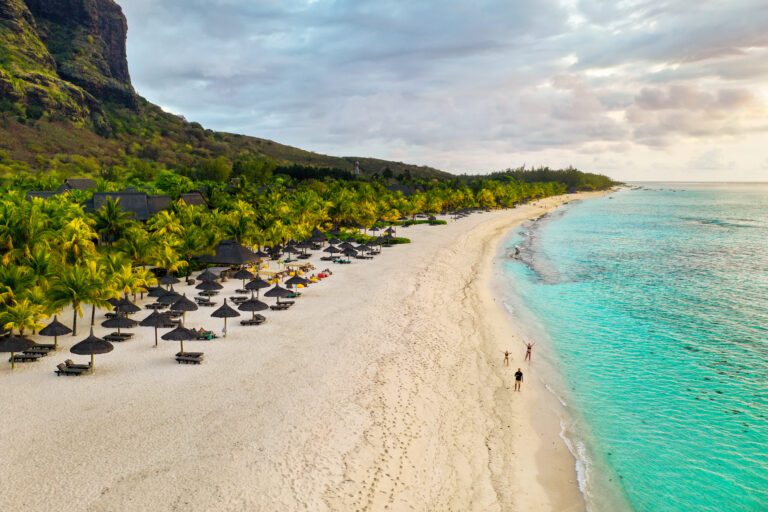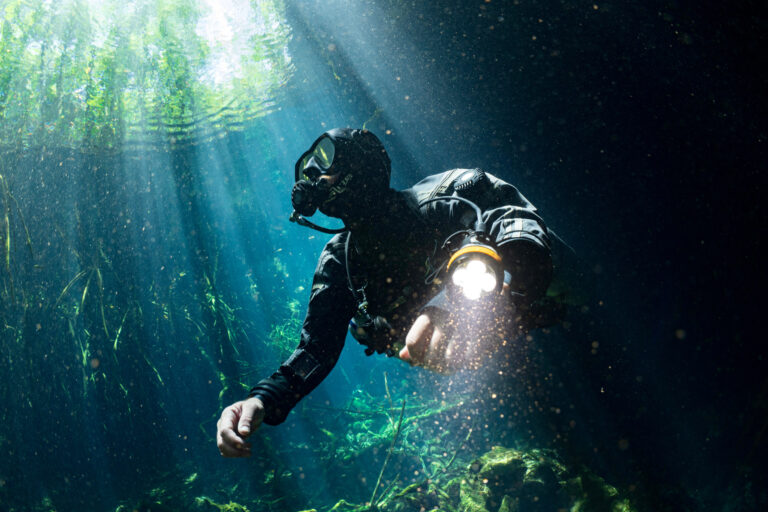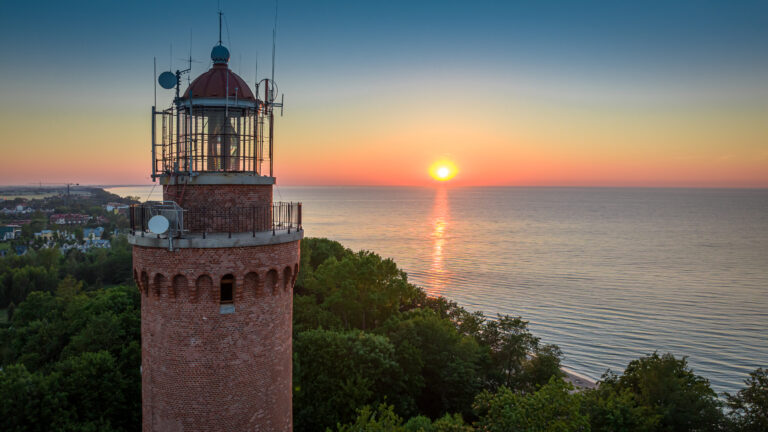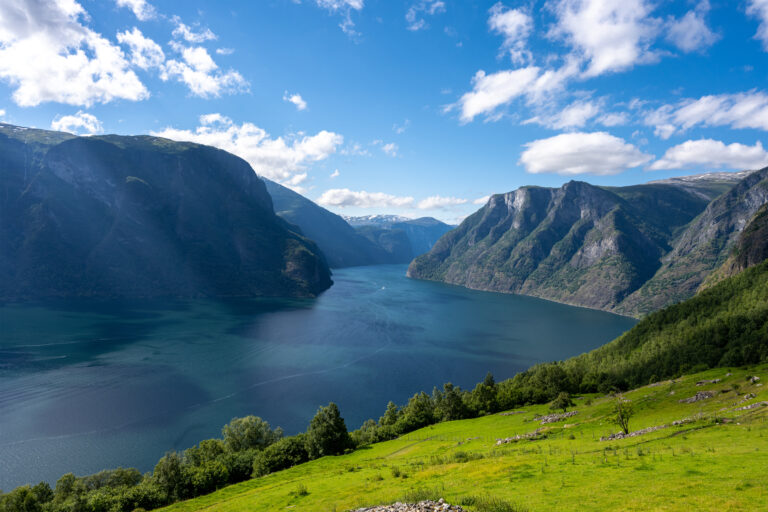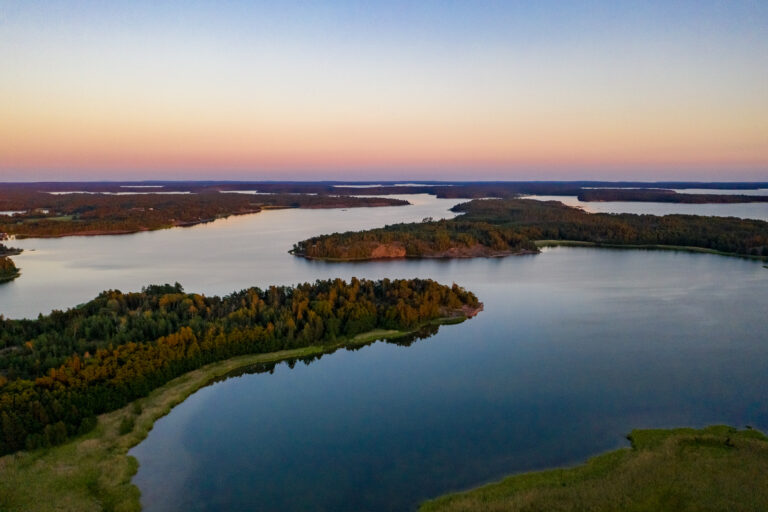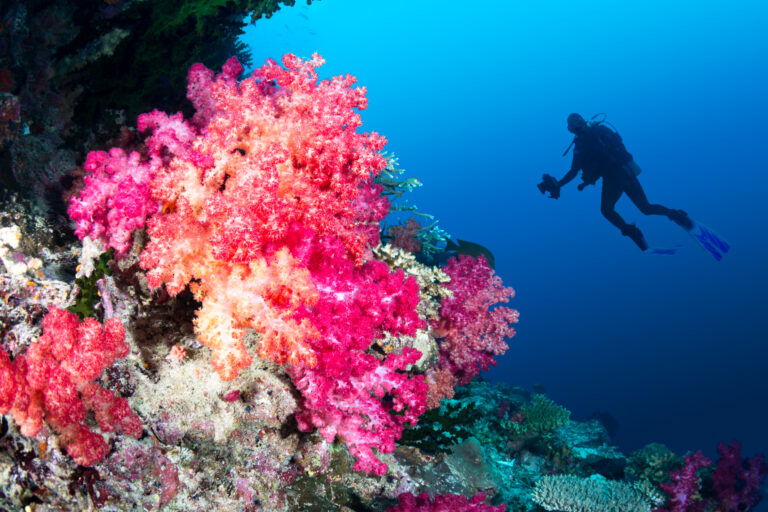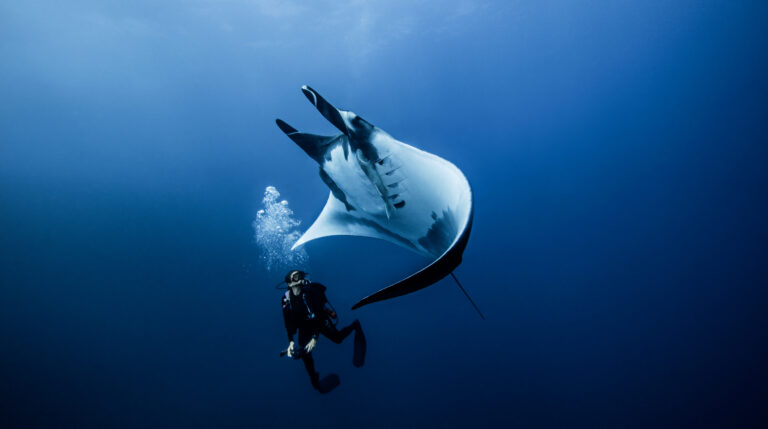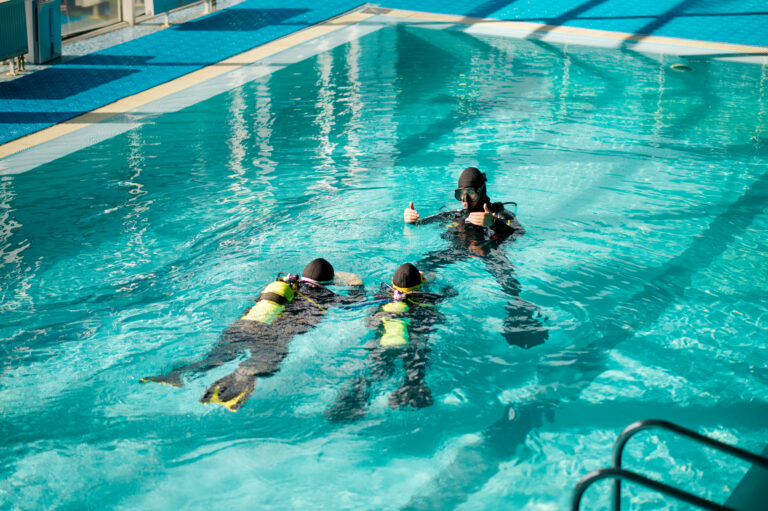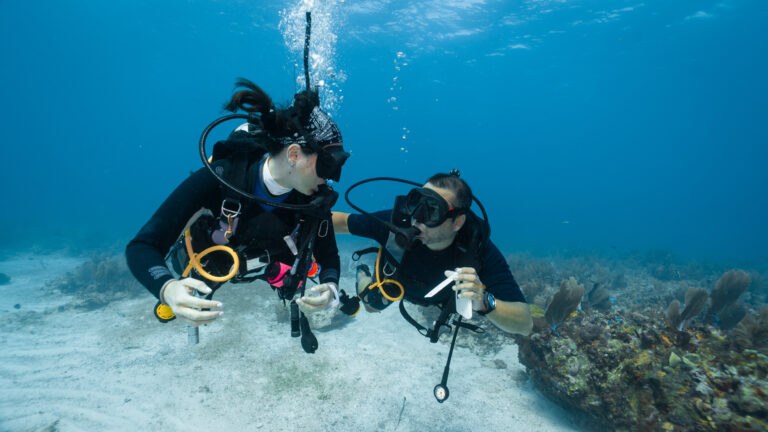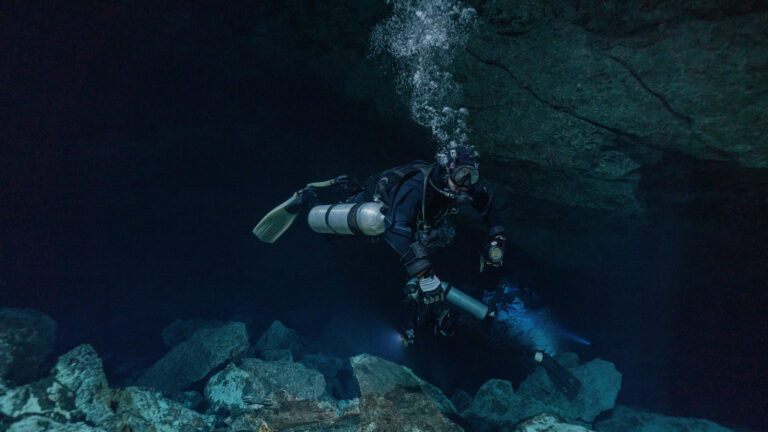SCUBA DIVERS’ TRAVEL GUIDE TO Georgia
Georgia is a country of contrasts, where ancient history meets modern culture. It is a land of diverse landscapes, from the snow-capped peaks of the Caucasus Mountains to the subtropical shores of the Black Sea. Georgia is also a paradise for scuba divers, who can explore the rich marine life and fascinating wrecks that lie beneath the waves. Whether you are looking for a relaxing dive in a calm bay, or an adrenaline-fueled adventure in a deep canyon, Georgia has something for every level of diver. You can discover the secrets of the Soviet navy, marvel at the colorful corals and fish, or even encounter dolphins and sharks. Georgia is a destination that will surprise and delight you with its beauty, culture, and hospitality.
LOCATION AND GEOGRAPHY
Nestled on the southeastern coast of the Black Sea, Georgia presents a unique and relatively unexplored scuba diving destination that beckons with its mysterious underwater landscapes and cultural heritage. The country’s geography is diverse, with a relatively small coastline that stretches approximately 310 kilometers (193 miles), offering access to a variety of dive sites. From the pebbled beaches of Batumi in the southwest to the subtropical climate of the Adjara region, Georgia’s underwater terrain is as varied as its onshore topography, which features the soaring peaks of the Caucasus Mountains in the north. Divers in Georgia can explore a range of environments, including intriguing shipwrecks, vibrant marine ecosystems, and even freshwater dives in its numerous lakes and rivers. The Black Sea itself is known for its brackish waters and unique conditions, with a lower salt content than other oceans and seas, which contributes to the preservation of historical artifacts and creates a distinctive habitat for marine life. Whether you’re a history buff seeking to uncover sunken secrets or a marine enthusiast eager to encounter the endemic species of the Black Sea, Georgia’s location and geography offer a scuba diving experience that is both rich in culture and natural beauty.
VISA AND ENTRY REQUIREMENTS
Before embarking on your underwater adventure in Georgia, it is crucial to ensure that your travel documents are in order. Visitors from many countries can enter Georgia without a visa for short stays, typically up to a year, including citizens from the United States, Canada, the European Union, and several other nations. However, it is essential to verify the latest visa requirements specific to your country of citizenship before planning your trip. You can do this by consulting the Georgian Ministry of Foreign Affairs website or contacting the nearest Georgian embassy or consulate. Upon arrival, ensure your passport is valid for at least six months beyond your period of stay. Additionally, while not directly related to entry requirements, it’s advisable to have proof of your diving certification and insurance that covers scuba diving activities, as some dive operators may request to see these before allowing you to dive. Always carry identification and a copy of your travel documents while in the country, and be aware of any transit visa requirements if you are traveling through other countries en route to Georgia.
GETTING TO Georgia
Getting to Georgia, the charming country nestled at the crossroads of Europe and Asia, is a straightforward endeavor for scuba diving enthusiasts looking to explore its unique underwater offerings. The country is served by several international airports, with Shota Rustaveli Tbilisi International Airport in Tbilisi being the primary gateway for most travelers. Direct flights are available from many European cities, as well as from Middle Eastern hubs, making it accessible from various parts of the globe. For those closer to the Black Sea region, the Batumi International Airport offers an alternative entry point, especially during the summer months when the coastal city becomes a bustling seaside destination. Once in Georgia, divers can travel to the coastal town of Batumi or other diving spots along the Black Sea coast by car, bus, or domestic flights. The country’s relatively small size and well-maintained roads make for easy travel to the dive sites, promising an adventure both above and below the water.
BEST TIME TO DIVE
The best time to scuba dive in Georgia, a hidden gem nestled on the east coast of the Black Sea, is generally from late spring through early autumn, with the optimal conditions peaking between June and September. During these months, divers can enjoy warmer water temperatures, ranging from 22°C to 24°C (72°F to 75°F), and improved visibility that can extend up to 20 meters (65 feet), offering a clearer view of the region’s underwater landscapes and marine life. The summer season also brings with it a more vibrant marine ecosystem, as many species are more active and visible. However, it’s important to note that weather patterns can be unpredictable, and it’s wise to check local conditions and consult with dive operators before planning your dive. Outside of these months, diving is still possible, but the cooler temperatures and potential for decreased visibility may affect the overall experience. Whether exploring the submerged relics off the coast of Batumi or the unique freshwater diving opportunities in Georgia’s lakes and rivers, timing your visit with the local conditions in mind will ensure the most rewarding underwater adventure.
ACCOMMODATION OPTIONS
In the diverse and historically rich country of Georgia, scuba diving enthusiasts will find a variety of accommodation options to suit their needs and preferences. Nestled along the Black Sea coast, the town of Batumi serves as a prime diving destination, offering a range of stays from luxury seaside resorts to cozy guesthouses. Divers can opt for upscale hotels with full amenities, ensuring a comfortable and relaxing experience after exploring the underwater wonders. For a more intimate and budget-friendly stay, local guesthouses and B&Bs provide warm hospitality and the opportunity to engage with Georgian culture. Adventure-seekers looking to be closer to nature can choose eco-friendly lodges or camping sites near the diving spots, allowing for quick access to the sea and a truly immersive experience. Regardless of the choice, divers will appreciate the convenience of on-site or nearby dive centers, equipment rentals, and knowledgeable staff to help plan their underwater excursions in Georgia’s aquatic landscapes.
DIVE OPERATORS AND DIVE SHOPS
In the diverse and often underestimated diving landscape of Georgia, dive operators and shops serve as the gateway to the state’s underwater treasures. From the freshwater springs and hidden underwater caves in the northern regions to the historic shipwrecks off the Atlantic coast, Georgia’s dive shops are well-equipped to cater to both novice and experienced divers. These local operators pride themselves on their intimate knowledge of the best dive spots, current conditions, and marine life encounters. They offer a range of services, including certification courses, gear rentals, and guided dive tours, ensuring a safe and memorable experience beneath the surface. Many shops also organize dive trips to the renowned Gray’s Reef National Marine Sanctuary, a living showcase of the Atlantic’s vibrant ecosystems. Whether you’re looking to explore the mysterious remnants of the Civil War ironclads or hoping to glide alongside the gentle giants of the sea, Georgia’s dive operators are your trusted companions for an underwater adventure.
TRANSPORTATION WITHIN Georgia
Transportation within Georgia, the Eastern European country nestled between the Black Sea and the Caucasus Mountains, is relatively convenient for scuba divers looking to explore its underwater treasures. The country’s compact size allows for easy travel between dive sites, primarily by road. Renting a car is a popular option for those who prefer flexibility and the ability to visit multiple locations at their own pace. For those not inclined to drive, Georgia offers a network of buses and minibuses (marshrutkas) that connect major cities and towns, including coastal areas like Batumi, where diving is prominent. While public transport may not always cater directly to remote dive spots, local dive shops often provide their own transport solutions or can arrange for private transfers to ensure divers reach their desired destinations. Additionally, for a quicker transit, domestic flights are available to hop between cities, although this option is less common for accessing dive sites. Regardless of the mode of transport, divers should consider carrying their gear in robust, waterproof bags to protect it during transit across Georgia’s diverse landscapes.
CURRENCY AND PAYMENT METHODS
When planning a scuba diving trip to Georgia, it’s important to note that the country’s official currency is the Georgian Lari (GEL). While major cities and tourist areas may accept credit cards, it’s advisable for divers to carry some cash, especially when visiting more remote dive sites or local markets. ATMs are widely available in urban centers, but less so in secluded areas. It’s also prudent to exchange currency at banks or official exchange bureaus for the best rates. Divers should be aware that while some dive operators may accept Euros or US dollars, it’s not universally accepted, and relying solely on foreign currencies could lead to inconveniences. Always check with your specific dive operator regarding preferred payment methods before your trip. Additionally, tipping for good service is customary in Georgia, and small denominations in local currency can be handy for expressing gratitude to dive guides and boat crews.
LANGUAGE AND COMMUNICATION
When diving in Georgia, particularly along the Black Sea coast, the primary language spoken is Georgian. However, in the scuba diving community, English is commonly used as a lingua franca, especially within dive centers catering to international tourists. Russian is also widely understood due to Georgia’s proximity to Russia and historical connections. It is advisable for divers to learn a few basic phrases in Georgian as a sign of respect and to enhance interactions with local residents. Dive briefings may be conducted in English or Russian, depending on the group’s composition. Hand signals under water are universal and are the primary means of communication between divers, but it’s important to review these with your dive guide or group before submerging, as some variations may exist. For a smooth experience, ensure that you are comfortable with the language abilities of your dive operator when booking your dives, and consider carrying a waterproof dive slate or underwater communication device for more complex or detailed interactions beneath the waves.
LOCAL CULTURE AND ATTRACTIONS
Georgia, nestled on the eastern coast of the Black Sea, offers a unique blend of cultural experiences and attractions that complement its scuba diving adventures. After exploring the underwater treasures, divers can immerse themselves in Georgia’s rich history by visiting ancient fortresses like the Gonio Fortress near Batumi, or the UNESCO World Heritage sites of Mtskheta. The country’s vibrant traditions are showcased through its folk music and dance performances, which often accompany the hearty Georgian feasts known as ‘supras’, where guests can indulge in local delicacies such as khachapuri and khinkali, paired with the renowned Georgian wines from the Kakheti region. In the coastal town of Batumi, divers can stroll along the Batumi Boulevard, a lively promenade dotted with sculptures and fountains, or ascend the Alphabetic Tower, which celebrates the unique Georgian script. The fusion of ancient customs with modern attractions makes Georgia an enriching destination for divers seeking to connect with the local culture above the waves.
CULTURAL ETIQUETTE AND TIPS
When scuba diving in Georgia, the country nestled at the crossroads of Eastern Europe and Western Asia, it’s important to embrace the local customs and etiquette to enrich your underwater adventure. Georgian culture is renowned for its warm hospitality, and as a visitor, you’ll likely be welcomed with open arms. However, be mindful of conservative dress codes when outside of diving environments, especially in rural areas and religious sites. It’s customary to remove shoes before entering someone’s home or a place of worship. When interacting with locals, a few words in Georgian, such as “gamarjoba” for hello and “madloba” for thank you, can go a long way in showing respect for their language and traditions. Additionally, be punctual for dive appointments as it reflects respect for your guides’ time. Lastly, be aware that toasting is a significant part of Georgian culture; if invited to a “supra” (traditional feast), it’s polite to partake in the toasts, but always drink responsibly, especially when planning dives. Remember, the key to a memorable diving experience in Georgia lies in the appreciation and adherence to its rich cultural tapestry.
LOCAL LAWS AND REGULATIONS RELEVANT TO TOURISTS
Before plunging into the underwater wonders of Georgia, scuba divers should acquaint themselves with local laws and regulations to ensure a safe and lawful experience. In Georgia, divers must be certified by a recognized agency and carry proof of certification. It is mandatory to use a dive flag to signal your location to boats and other watercraft, and divers must stay within a specified distance from the flag. Collection of artifacts or natural objects from underwater sites is strictly regulated, and in some cases, prohibited to preserve local heritage and marine ecosystems. Fishing or spearfishing during a dive is subject to local fishing laws, including size and bag limits, and may require additional permits. Divers should also be aware of protected marine areas where activities may be restricted to conserve the fragile ecosystems. It is advisable to check with local dive shops or authorities for the most current regulations and any site-specific rules before embarking on your underwater adventure in Georgia.
SAFETY TIPS AND EMERGENCY CONTACTS
When planning a scuba diving trip to Georgia, safety should be your top priority. Before embarking on your underwater adventure, ensure that you are well-trained and certified by a recognized agency, and always dive within the limits of your experience and comfort level. It is crucial to perform a thorough check of all your equipment, including your BCD, regulators, and tanks, and to familiarize yourself with the local dive conditions such as currents, visibility, and water temperature. Always dive with a buddy and maintain good communication throughout the dive. Be aware of the signs and symptoms of decompression sickness and know the location of the nearest hyperbaric chamber, which in Georgia is situated at the Divers Alert Network (DAN) affiliated facility in Savannah. In case of an emergency, keep the contact information for the local Coast Guard and DAN (Divers Alert Network) handy, which can be reached at +1-919-684-9111 for worldwide emergency assistance. Additionally, ensure that you have appropriate insurance that covers scuba diving emergencies and evacuations. By adhering to these safety tips and having emergency contacts readily available, you can help ensure a safe and enjoyable diving experience in the beautiful waters of Georgia.
HEALTH AND TRAVEL INSURANCE
Before embarking on your underwater adventure in Georgia’s vibrant aquatic landscapes, it is crucial to secure comprehensive health and travel insurance that covers scuba diving activities. The allure of exploring Georgia’s Black Sea coast or its freshwater springs and caves is undeniable, but diving always carries inherent risks, from decompression sickness to unexpected injuries. Ensure that your policy includes coverage for hyperbaric treatment, medical evacuation, and repatriation, as local medical facilities may be limited, especially in remote diving locations. Additionally, verify that your insurance is recognized by local dive operators and clinics. It’s also wise to check if your policy covers trip cancellations or gear rental issues, so you can dive into Georgia’s underwater marvels with peace of mind, knowing you’re well-protected against unforeseen circumstances.


